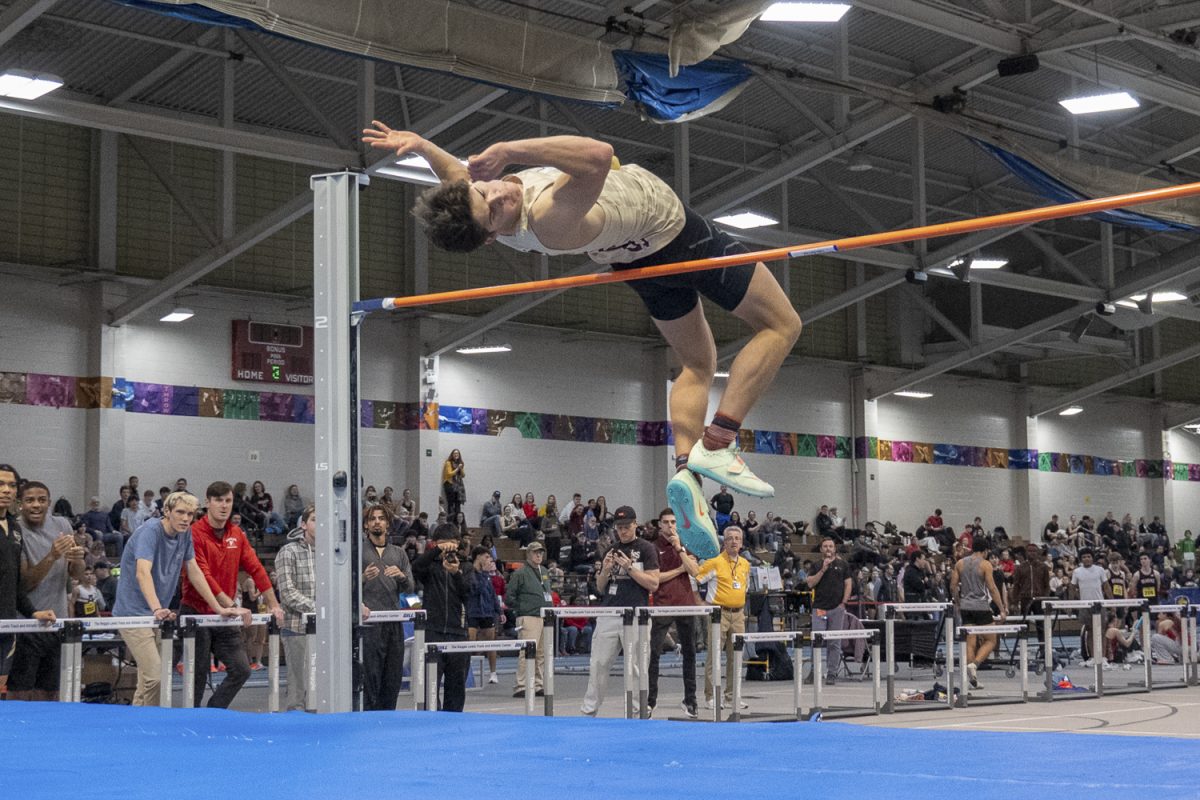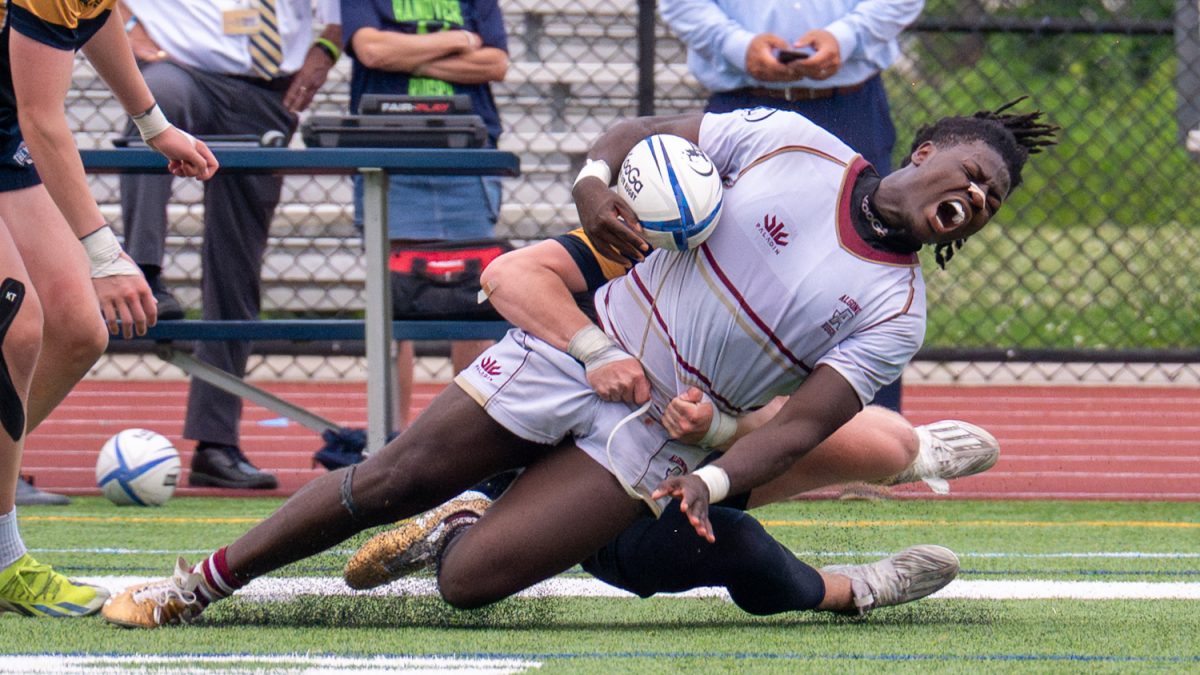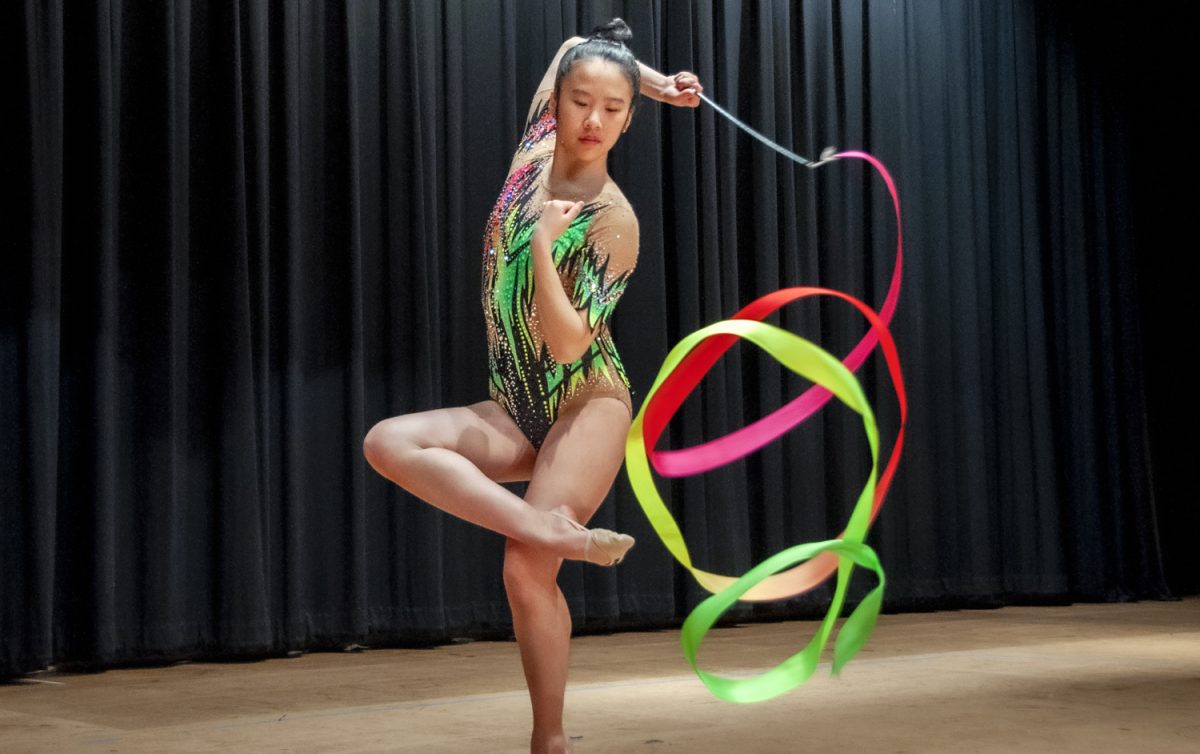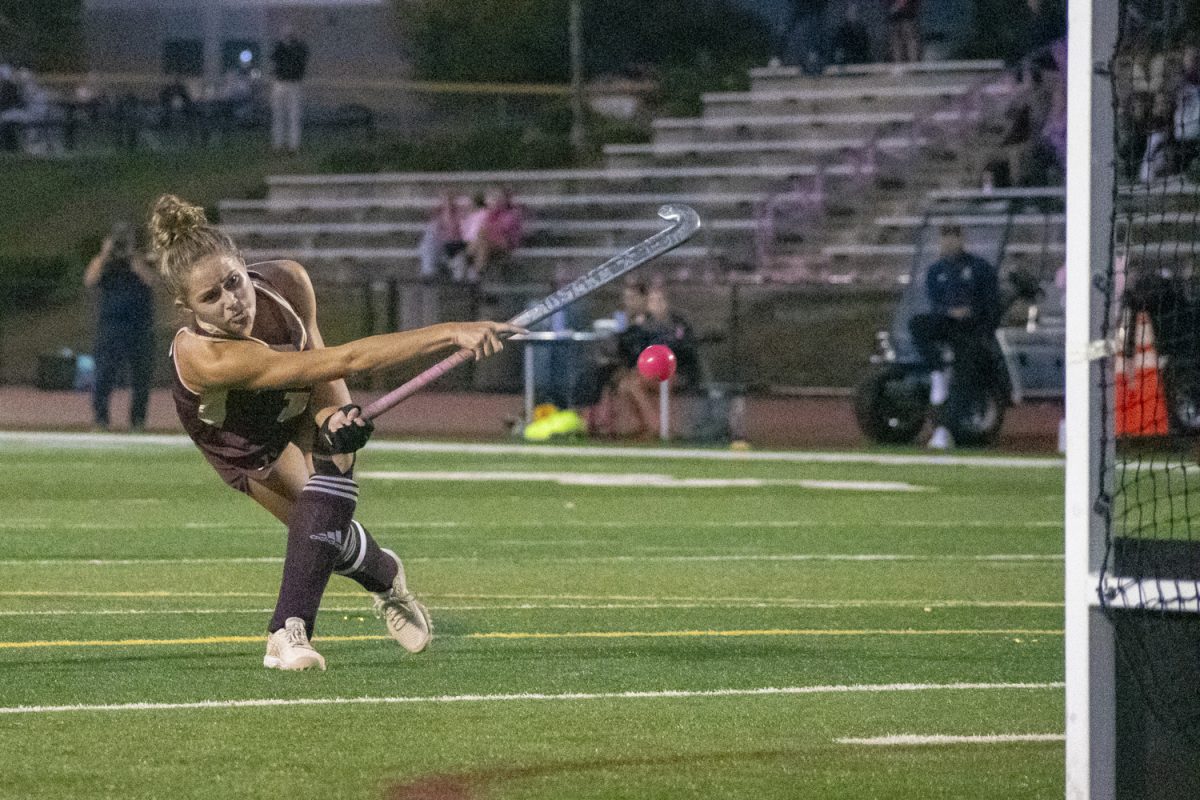With his hardwork and determination, senior Miles Lipka blew away his competition to take home gold in the pentathlon at Nationals on Feb. 26.
As a pentathlete, Lipka must compete in five specific events: the 55 meter hurdles, high jump, long jump, shot put and 1000 meter dash. He placed first in the high jump (6 ft, 7.5 inches), second in the 55 meter hurdles (7.61 seconds) and long jump (21-9), third place in shot put (46-8.75) and seventh place in the 1000 meter dash (2:49.1).
Along with this achievement, Lipka has lined up a long list of accomplishments. He broke Algonquin’s pentathlon record and his own personal record of 3441 points, setting a new state record of 4021 points. His pentathlon score was first in the nation for the 2025 indoor track and field season.
Going into Nationals, he knew that he was the favorite to win and was confident in himself after years of training.
“I felt like I was hitting a really good spot on all my events and really started to figure everything out,” Lipka said.
However the night before, he was experiencing extreme cramping and tightness in both his glute and hamstring.
“I could barely walk the night before,” Lipka said. “I was pretty scared because I had a near perfect preparation and had scored really well a few weeks before…I wasn’t even sure if I would be able to compete. I woke up the next morning feeling the same way, so going into the meet I didn’t think I was going to finish.”
Once he began to stretch and was fully warmed up, Lipka was able to push through and he decided to compete. Although his performance in hurdles and long jump was affected by his tightness, he tried his best to place well while limiting the risk of injury.
“Going into the 1000 meter dash, I knew how I needed to place against the other athletes to win,” Lipka said. “Getting through that race was a very big relief to me considering everything I was going through that day.”
Boys’ track and field coach Corey Pooler knew that Lipka had the potential to succeed after training him for the past couple of years.
“He’s that good of an athlete that it almost wasn’t even a surprise to us,” Pooler said. “I told him that even though a lot of us expected for that to happen, it is still insane that it’s at that level.”
While winning Nationals was one of his proudest moments, Lipka tends to focus more on his personal records (PRs) than his awards and titles.
“Getting PRs and improving is more satisfying than winning meets,” Lipka said. “It’s almost addictive. Something about getting better and getting your stats up is very fulfilling.”
Lipka had always been an athlete, playing soccer in his childhood, but first gained interest in track and field after attending the annual summer track and field camps at Algonquin in elementary and middle school.
“Every year I would look forward to it, so I knew that once I got into high school I would join the team and that it would be my favorite sport,” Lipka said.
Outside of the summer programs, he was inspired by athletes who posted their training and advice online, such as Australian decathlete Cedric Dubbler.
“He might have been one of the reasons I got into decathlon [and pentathlon],” Lipka said. “I found him on YouTube and he vlogged his training and competitions. It looked really fun to me so I think that might be one of the reasons I decided to try it.”
He joined the team his freshman year, starting off with jumps and hurdles. It was in his sophomore year that he started to train for the pentathlon and decathlon after realizing he was talented at picking up a variety of events. While he does train for a multitude of events, high jump is his favorite.
“I think it is really fun to be able to clear a bar above the height of your own head,” Lipka said. “For me, it is the most fun way to test yourself.”
Lipka’s journey to success was not an easy one, dedicating hours on end each week to the sport. Outside of practice and meets, he tends to watch his own film.
“I try to analyze my own film and see how it compares to elite athletes,” Lipka said. “From there, I try to adjust my technique in order to be more like them.”
Lipka’s commitment to the sport is something Pooler admires and attributes to his success.
“He isn’t settled until he is the best he could possibly be, which is a great attribute to have when you want to compete at the highest level,” Pooler said.
In comparison to his past years, Lipka has taken a different approach with his training, which has allowed for him to bring his events to the next level.
“In the past, I would focus more on technique and do a bunch of different events at practice,” Lipka said. “I think this past year I’ve seen a lot of improvement because I have been focusing more on my athleticism in terms of speed, strength and explosiveness.”
Lipka aspires to keep track and field a key focus in his life, committing to the University of Rhode Island’s Division I track and field program. However, Lipka does not plan to stop there.
“In the future, I want to go to higher places,” Lipka said. “I have a dream to get to the elite level one day and right now I am just focusing on improving bit by bit.”










![Senior Benoit Skilton misses his final jump at 14 feet for pole vault at the Division 2 Outdoor Track and Field Championship meet at Merrimack College. When asked about a message he would give to anyone, he replied, "Never give up. There is never a single time where giving up is the best option... Every jump is different. Every jump is a chance to clear [the bar]." Skilton tied the Algonquin school record again and his own personal best of 13'6."](https://arhsharbinger.com/wp-content/uploads/2025/05/0529-States-White1140-Enhanced-NR_1500-1200x800.jpg)

